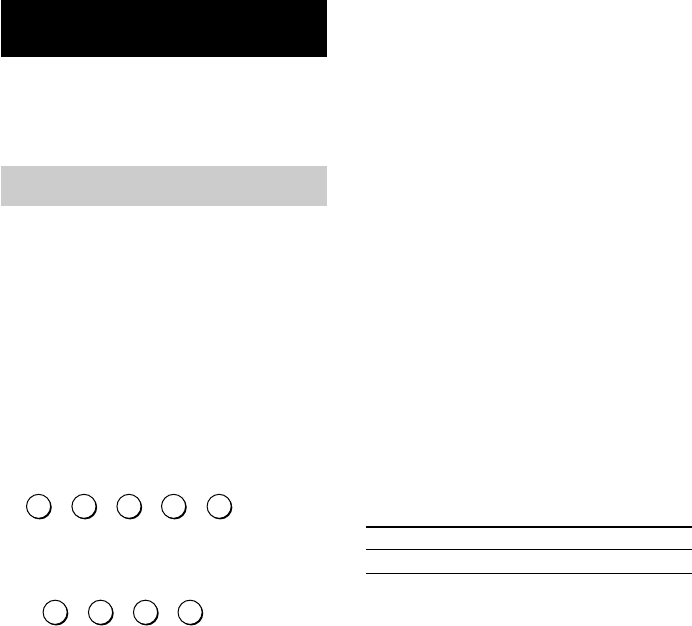
30
US
HT-6600DP 4-244-560-11(1) US
Receiving Broadcasts
bbbb
1 0 2 5 0
bbb
1 3 5 0
Before receiving broadcasts, make sure you
have connected FM and AM antennas to the
receiver (page 7).
Direct tuning
You can enter a frequency of the station you
want directly by using the numeric buttons on
the supplied remote. For details on the buttons
used in this section, see pages 36–42.
1 Press TUNER on the remote repeatedly
to select the FM or AM band.
The last received station is tuned in.
2 Press D. TUNING on the remote.
3 Press the numeric buttons to enter the
frequency.
Example 1: FM 102.50 MHz
Example 2: AM 1350 kHz
(You don’t have to enter the last “0” when the
tuning scale is set to 10 kHz.)
If you cannot tune in a station and the
entered numbers flash
Make sure you’ve entered the right
frequency. If not, repeat steps 2 and 3.
If the entered numbers still flash, the
frequency is not used in your area.
4 If you’ve tuned in an AM station, adjust
the direction of the AM loop antenna for
optimum reception.
5 Repeat steps 1 to 4 to receive another
station.
Tips
• If you do not remember the precise frequency, press
TUNING + or TUNING – after entering the value
close to the frequency you want. The receiver
automatically tunes in the station you want. If the
frequency seems to be higher than the entered
value, press TUNING +, and if the frequency seems
to be lower than the entered value, press
TUNING –.
• If “STEREO” flashes in the display and the FM
stereo reception is poor, press FM MODE to change
to monaural (MONO). You will not be able to enjoy
the stereo effect, but the sound will be less
distorted. To return to stereo mode, press FM
MODE again.
The tuning scale differs depending on the area code
as shown in the following table. For details on area
codes, see page 4.
Area code FM AM
U, CA 100 kHz 10 kHz*
* The AM tuning scale can be changed (page 47).


















